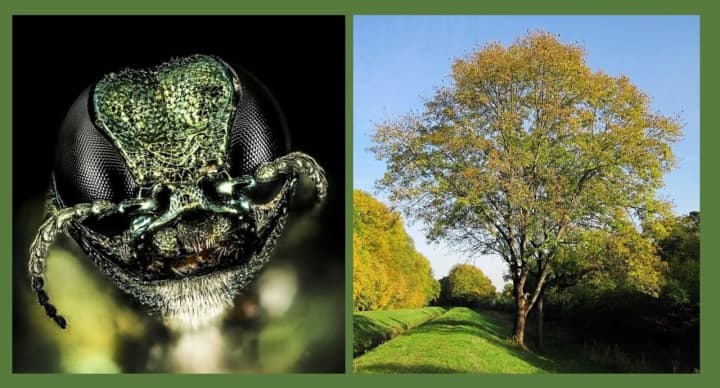The free session will teach people how to identify the emerald ash borer and what they can do about it.
"We're here to save trees and help people overcome this infestation -- and be realistic, in the economics," said Paul Kurtz, an entomologist at the New Jersey Department of Agriculture.
He will be one of the speakers at the seminar, joined by Pam Zipse, outreach coordinator at Rutgers Urban Forestry.
This insect is native to China, Eastern Russia, Japan and Korea, and it's believed to have arrived in North America in the mid-'90s, through Great Lakes shipping.
It was discovered near Detroit in 2002, and it's killed millions of trees and caused billions of dollars in damages. Kurtz said the insects may cause $20 billion just in landscape damage.
He said the critter was discovered in New Jersey in 2014. As of last summer, it's been found in Bergen, Burlington, Essex, Hunterdon, Mercer, Middlesex, Monmouth and Somerset counties.
The adult beetles feed on ash leaves, but it's the larvae that really destroy the trees, Kurtz explained. As they enter their growth stage, the feed under the bark, destroying trees' water and nutrition system.
"Think of having a garden hose, and if you ran over it with a lawnmower at 20 feet, you wouldn't get any water beyond that point," he said. Within just a few years, 99 percent of untreated ash trees in the state could die from infestations.
The New Jersey Emerald Ash Borer Task Force is dealing with this invasion in a few different ways.
It's trying to slow the spread, by doing trapping and even releasing parasitic wasps. It's also working to educate people about the issue and help communities develop action plans.
These sessions aim to help both homeowners and municipalities make the best decisions about their trees, whether that's professionally treating them with pesticides or even cutting them down.
Trees provide a variety of benefits beyond aesthetics, like shade and cooling, but Kurtz also stresses some less obvious benefits, like wind protection and even stormwater retention.
Zipse said her work also involves guiding municipalities in making those decisions.
"We're hoping to help people make more informed decisions," Kurtz said. "We encourage the public to come learn."
The session will run from 1-3 p.m. at the James A. McFaul Environmental Center, located at 150 Crescent Ave., in Wyckoff. RSVPs were initially requested, but walk-ins are welcome.
Homeowners can also get information about dealing with the emerald ash borer here.
Click here to follow Daily Voice Wyckoff-Franklin Lakes and receive free news updates.


